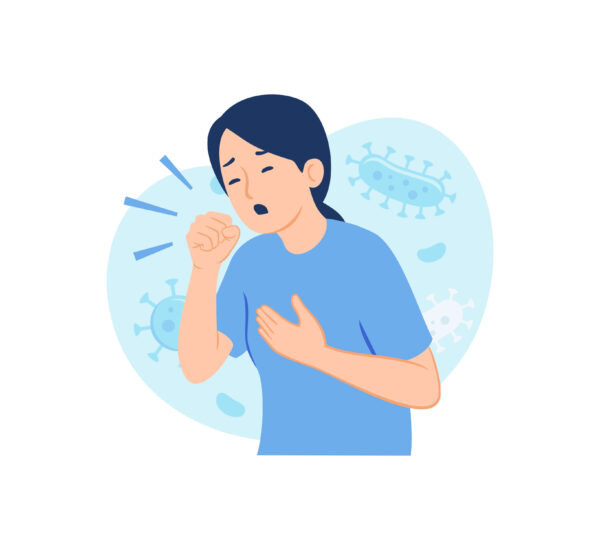Living with asthma requires constant vigilance and awareness to fully manage the condition. That way if there’s a trigger present, the patient can lessen the severeness of the asthma attack. However, to do that, it can take a lot of knowledge and expenses to maintain a healthier respiratory health. Thus, people commonly resort to asthma treatment at home.
Home remedies for asthma may involve various aspects from alternative treatments to other steps such as stress management. Such solutions can provide additional assurance for alleviating asthma symptoms and improve overall quality of life. So, if you are interested in this kind of approach, read on to learn more about how possible asthma treatment at home can secure respiratory health. Let’s begin!
Understanding Asthma and Its Home Management

Asthma is a chronic respiratory condition characterized by inflammation and narrowing of the airways. While asthma cannot be cured, it can only be effectively managed at home. That’s why with a working plan for asthma treatment at home, it can help avoid triggers while allowing the patients to enjoy life better
There’s no denying that asthma is one of the conditions that can limit patients from performing certain activities. With the constant threat of the risks involved in this condition, it can affect the patient’s experience in life. That’s why it is important to have several options when managing asthma. Thus, asthma treatment at home is available as another approach to asthma management.
Take note that while home remedies can be effective in managing asthma symptoms, they have certain limitations and should not replace medical treatment. Severe asthma attacks require immediate medical attention, and individuals should always follow their prescribed asthma action plan. By combining medical treatment with home remedies, individuals can gain better control over their asthma and lead a healthier and more active life.
Symptoms and Causes of Asthma
To effectively manage asthma at home, it’s important to understand the basics of the condition, which includes its causes and symptoms. This respiratory problem produces symptoms that can be alarming, especially if not addressed immediately. Some of the common symptoms an asthma patient has are wheezing, shortness of breath, chest tightness, and coughing.

Now, there are many patients who have been diagnosed with asthma that have those symptoms. That’s because of the several contributing factors that cause people to develop this respiratory condition.
In most cases, people can develop asthma due to genetic and environmental factors. For instance, individuals who have a family history of asthma, these people have a high chance of also developing asthma. At the same time, an inflamed lung can affect the airways, resulting in asthma attacks.
However, that’s not the only possible way to have asthma. People can also develop the condition due to allergens. These irritants such as pollen, dust mites, pet dander, and mold can trigger asthma symptoms in individuals with sensitivities. Other triggers include respiratory infections, tobacco smoke, air pollution, exercise, and emotions.
So, if you or someone you know developed such warning signs because of involvement in such causes, there’s a high chance they have asthma.
Managing Condition with Asthma Treatment at Home
With the different factors present, that can only mean that the patient can have an exacerbation of asthma anytime. Thus, the need to manage the condition immediately, which patients can start by visiting a health expert. Of course, with a health threat like asthma, it is important to have a control of the situation, which a treatment plan can provide.
Medications like asthma inhalers are one of the possible treatment options that the doctor will provide. This apparatus is dedicated to help patients breathe with the medication that can travel to the lungs.
Despite that function, it can’t stand alone in managing asthma conditions. That’s why asthma treatment at home must also include other factors, which we’ll discuss below!
Breathing Techniques for Asthma Sufferers

One of the suitable forms of asthma treatment at home can include the practice of breathing techniques. This treatment is essential for its role in improving respiratory function. It focuses on controlling and regulating breathing patterns, reducing hyperventilation, and promoting relaxation.
Here are some of the techniques and how they can help:
- Diaphragmatic Breathing: It is a technique that involves deep inhalation and exhalation, using the diaphragm to expand and contract the lungs. It helps improve oxygen intake and promotes relaxation.
- Pursed Lip Breathing: This technique involves inhaling slowly through the nose and exhaling through pursed lips. It helps control breathing rate, reduce breathlessness, and improve lung function.
- Buteyko breathing: The Buteyko method focuses on reduced breathing and nasal breathing to improve carbon dioxide levels in the body. It helps regulate breathing patterns and reduce hyperventilation.
By incorporating these breathing techniques into their daily routine, individuals with asthma can better manage their symptoms, improve lung function, and reduce the frequency and severity of asthma attacks.
Environmental Control and Asthma
Aside from breathing techniques, patients with asthma can also try to lessen their exposure to allergens, especially at home. Asthma treatment at home can include cleaning the house to get rid of common allergens like dust mites, pet dander, and other environmental triggers.
Remember, your home should be a haven for resting, and not a place where the triggers reside. By ensuring a clean household and proper ventilation of the area, patients can reduce asthma attacks and manage their health.

Reducing Indoor Allergens: Practical Tips
- Use allergen-proof covers on mattresses and pillows to reduce dust mite exposure.
- Wash bedding regularly in hot water to eliminate dust mites and allergens.
- Vacuum frequently using a vacuum cleaner with a HEPA filter to remove allergens from carpets, rugs, and upholstery.
- Keep indoor spaces clean and free of clutter to minimize dust accumulation.
- Avoid smoking indoors to reduce exposure to secondhand smoke, a common asthma trigger.
- Regularly clean and maintain indoor spaces to prevent the growth of mold and the accumulation of indoor allergens.
- Use air purifiers with HEPA filters to help remove allergens and improve indoor air quality.
Try considering these practical tips, or create a healthier living environment that is conducive to better asthma management.
Exercise as Asthma Treatment at Home

Another form of asthma treatment at home is improving lung function through moderate physical exercises. Patients can slowly incorporate exercise in their daily routine to accustom their body. This asthma treatment at home can also reduce inflammation, boost the immune system, and promote better respiratory function.
To ensure safe and effective exercise, individuals with asthma should work with their healthcare provider to develop an asthma action plan. This plan outlines the necessary precautions, exercise goals, and appropriate medications to manage exercise-induced symptoms. By following the asthma action plan and incorporating exercise into their routine, individuals with asthma can improve lung function, reduce symptoms, and lead a more active and healthy lifestyle.
Safe Physical Activities for Asthma Patients
- Walking: Brisk walking is a low-impact exercise that can be easily modified to suit individual fitness levels.
- Swimming: Swimming in a warm water pool can help humidify the airways and provide a good cardiovascular workout without the risk of asthma triggers.
- Cycling: Cycling on flat terrain or using a stationary bike indoors can be an effective way to improve cardiovascular fitness without excessive strain on the respiratory system.
- Yoga or tai chi: These mind-body practices focus on breathing techniques, stretching, and relaxation, promoting better lung function and reducing stress.
- Strength training: Engaging in strength training with proper technique and appropriate weights can help improve overall fitness and strengthen respiratory muscles.
By choosing safe physical activities and monitoring symptoms, individuals with asthma can engage in regular exercise while effectively managing their condition.
Supplements for A Better Health

On the other hand, another asthma treatment at home that patients can utilize is health supplements. Patients with asthma can have weaker immune systems than other people. That’s why ensuring to assist the body with supplements can help them to fight off infections that can further affect their respiratory health.
Some supplements to consider:
- vitamin d supplement
- vitamin c supplement
- magnesium
- caffeine
- choline
- omega-3s
Take note that before you intake a certain supplement, it is important to seek a consultation with your doctor first. That way you can clarify whether or not a side effect might take place when you use certain types of medications.
Stress Management Techniques

Aside from those treatment options, another important aspect is relieving the stress that asthma brings to the patients. These stress management techniques are important to master as stress can sometimes worsen the asthma condition further. Therefore, this asthma treatment at home can be helpful.
All you need to do is to consider the following alternative medicine techniques:
- Mindfulness: Practicing mindfulness involves being fully present in the moment and paying attention to thoughts, feelings, and bodily sensations without judgment. It can help reduce stress and promote relaxation.
- Meditation: Meditation involves focusing the mind and eliminating the stream of thoughts. It can help reduce stress, calm the mind, and promote relaxation.
By incorporating these stress management techniques into daily life, individuals with asthma can better cope with stress, reduce asthma triggers, and improve overall respiratory health.
Limitations of Home Remedies Against Asthma Attack
As mentioned, medications as a treatment for asthma can’t help manage asthma conditions alone, and following remedies like asthma treatment at home only won’t also work alone. In short, a combination of both treatment options can help make a difference with the patient’s respiratory health.
For instance, severe asthma attacks require immediate medical attention and should not be solely managed with home remedies. It’s crucial to have a proper action plan in place and to follow the prescribed medications and treatments as directed by a healthcare professional.
By recognizing the limitations of home remedies, and the role of medical intervention, patients can have a higher chance of managing asthma.
When to Seek A Pulmonologist
Asthma is a condition that affects the airways due to inflammation. In short, it can lead to breathlessness and other life-threatening effects to the patients. That’s why it is a must to seek a doctor to assess the patient’s conditions. A pulmonologist is a doctor that can help you out!
Furthermore, a pulmonologist can provide a comprehensive evaluation, develop an individualized treatment plan, and offer specialized care for individuals with severe asthma. By seeking help from this doctor, individuals can receive appropriate medical help, effectively manage their condition, and improve their overall respiratory health.
Final Takeaway
Managing asthma effectively with asthma treatment at home remedies is a reliable treatment plan for patients that need additional help. It involves breathing techniques, and other essential steps to achieve a better respiratory health. Although, do take note that such form of treatment should be partnered with medication treatment from a health expert. Thus, allowing to strengthen the lungs and avoid triggers in the long run.
If you are wondering how to manage your asthma today, then don’t hesitate to consult first from a pulmonologist. Discover the medication aspect for treating asthma, and consult about the home remedies suitable for your condition.
Asthma Treatment at Home
Test your knowledge about managing asthma at home
Need Expert Asthma Care?
Consult with a pulmonologist for personalized treatment and management of your asthma symptoms.
Find an Asthma Specialist


